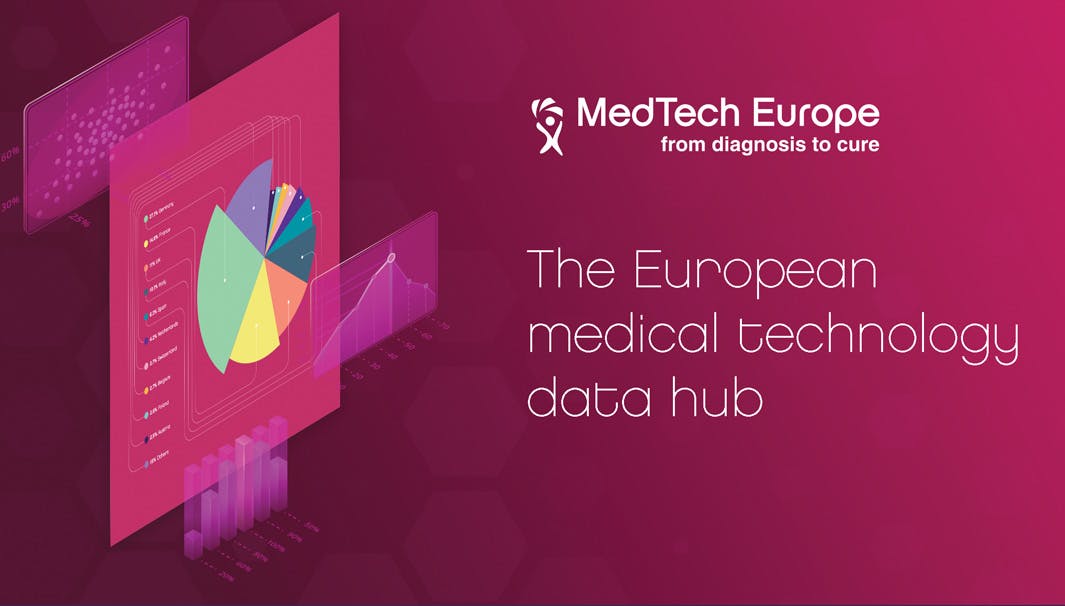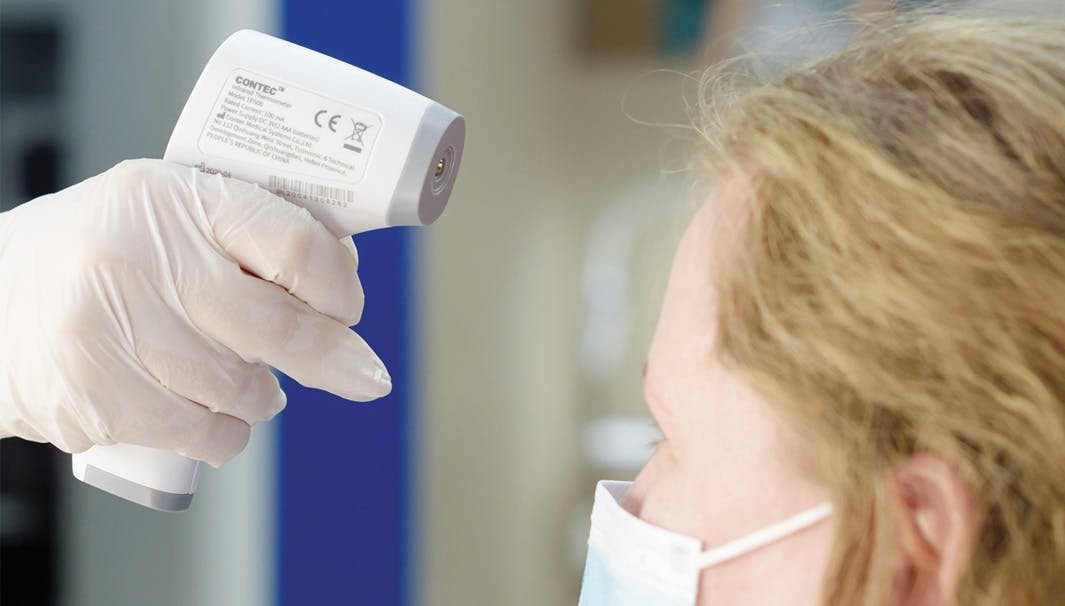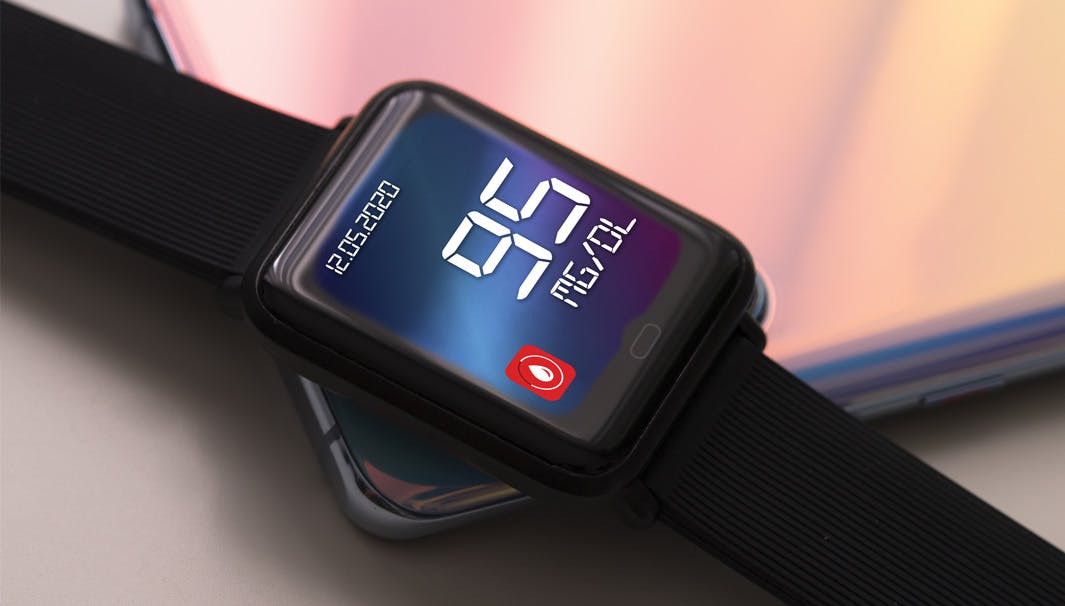MedTech Week Magazine 2020 At a glance
Highlights from the 6th Edition of the Award-Winning MedTech Week Magazine
7 million
social media impressions
Future generations may ask: What did you do when the COVID-19 crisis struck? The pandemic challenged all of us, personally and professionally, and I am proud to be part of a sector that found solutions to our shared problems. In the face of adversity, we jumped into action.

19
Countries
Participating
40
Members
Engaged
12
Active Campaigning
Weeks
24
expert & patient
perspectives
88
activities
during this week
59,000
media impressions
75,000
website pageviews
300,000
billboard views
Articles

Delivering value
Value-based healthcare delivers the outcomes patients want – with the greatest efficiency

MedTech Europe launches Data Hub
Interactive platform provides the latest data on the medtech industry

A Vision for a Digitally Enabled Diabetes Care
Digital tools are key to improve diabetes care.

Medtech takes the metro
Role and value of medtech highlighted across Brussels metro stations

The power of information in diagnostics
Webinar put the spotlight on the value of diagnostic information ‘in the new normal’

Building a healthy society and economy
The medtech sector is powering the future of health – and the economy

Medtech vs chronic diseases
For people with chronic conditions, health technologies are part of everyday life

The power of diagnostics
Social media campaign illustrates the value diagnostics bring to health

France preparing for medtech future
Government pledges support for industry which has been at the heart of crisis response

Precision + efficiency = better care
Healthcare has never been more accessible, intelligent or dynamic
Perspectives

mHealth at a tipping point?
COVID-19 showed the value of digital health technologies. Now, financing new care pathways using such technology enables mHealth apps to go mainstream.

Health & research: why regulations matter
Researchers and clinicians must understand the regulatory rules so we can shape and apply them.

Medtech in a time of crisis
How the COVID-19 crisis changed my perception of the medical device regulatory framework

Digital disruption in diabetes care
What a rollercoaster the last few months have been – a world has been defined through the lens of a global COVID-19 pandemic has embraced digital technology

Telemedicine in the spotlight
How the COVID-19 crisis changed my perception of the medical device regulatory framework

Pharmacy’s digital future
A pharmacy student’s view on digitalisation and eHealth in community pharmacies across Europe

Regions can drive value
Procurement of innovative solutions by regional authorities will help public healthcare systems rise to the challenges we face

The digital transformation of cancer care
New Digital Health Network will focus on embracing new and existing digital tools

Europe’s post-crisis vision
The COVID-19 pandemic sparked a crisis in our health systems from which we must learn – research and innovation on post-acute and long-term care are essential

Wanted: EU action on health
The new second mandate of the European Parliament Interest Group is an opportunity to focus on innovation in health and social care

A Vision for a Digitally Enabled Diabetes Care
Digital tools are key to improve diabetes care.
Diabetes affects 60 million people across Europe and the numbers are rising rapidly. A new paper published by MedTech Europe, ‘A Vision for Digitally Enabled Diabetes Care in Europe’, sets out the views of experts on key trends, challenges, and possible solutions, as well as the role of digitisation in empowering people with diabetes and improving the quality of care.
To discuss the findings and themes of the paper, Professor John Nolan, Trinity College Dublin, moderated two online panel discussions on how the latest developments are laying the foundations for the future. More than 160 attendees tuned in for the webinars which featured contributions from doctors and patient advocates.
Contributors agreed that new thinking is urgently required. Almost one in 10 people in Europe have diabetes, putting them at risk of serious complications. These complications are largely preventable if the condition is managed well.
Digital technologies will play a key role in the future of diabetes care. This was evident when work on the paper began but has become even clearer since the COVID-19 outbreak.
‘Diabetes care is increasingly being supported by digital technologies,’ said Prof Nolan. ‘We knew this before the pandemic, but COVID-19 has been an immediate and urgent trigger for adaptations in medical care. It has underscored the need for much more integrated care in diabetes.‘







